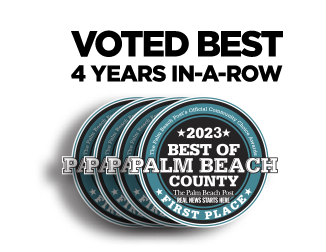Get Email Updates
Get an email the instant your dream home hits the market with your MyLogin account
Updated June 24, 2025 5:28AM EST








View exclusive Market Reports & Stats on your South Florida Community.
Get your Free Market ReportDetermine your home's estimated value based on ecent homes sales in your area.
The largest and most complete private directly of commercial listings not on the MLS. Contact us directly with your specific needs to see if we have a match.
Article first appeared: https://finance.yahoo.com/news/4-signs-affordable-city-becoming-170034988.html
Any list of U.S. cities where living costs have spiked in recent years is likely to include familiar names like Boston, Miami, New York, San Francisco and Seattle. But you’ll also see a rising number of once-affordable cities, such as Fresno, California, and Pittsburgh.
There’s no mystery as to why affordable cities become more expensive. It usually boils down to the normal rules of supply and demand. When cities attract more residents, it creates a snowball effect that impacts everything from housing to consumer goods.
This usually results in higher home prices and rents. But those aren’t the only things that can make a city more expensive, according to Anthony Grosso, a New York-based financial strategist and mortgage loan originator.
“Housing costs, rents and food prices are the big things we talk about, but there are some hidden things that increase the cost of living that people don’t realize,” Grosso told GOBankingRates. “And this isn’t something you can find in normal online data — it comes from asking the right questions.”
Here are four signs that an affordable city is becoming more expensive to live in.
The surest sign that an affordable city is becoming more expensive is difficulty finding a home or apartment. As more people flock to a city, it leads to a tighter inventory of places to buy or rent — especially if builders don’t move quickly enough to add more homes. The result is heated competition for available homes, leading to higher prices.
Compounding the problem is that in a rising market, many homeowners might be reluctant to sell because they know their home will keep rising in value, according to a blog from Compass Mortgage. Meanwhile, the number of available homes can also be reduced by demographic shifts, such as senior populations choosing to age in place rather than downsize.
Jeff Lichtenstein, broker and CEO of Echo Fine Properties, pointed to West Palm Beach, Florida, as an example. The city’s current population is more than 126,000, he explained. That’s up from about 117,500 in 2020 and around 82,000 in 2000.
“There is nowhere to build anymore because there is no land left in the prime areas,” he said. “New construction only occurs by knocking down and building up. The extra 8,870 residents over the past four years are now competing for a fewer supply of existing home sites.”
As a city becomes bigger and housing inventory becomes tighter, you might see an increase in the costs of ancillary services related to housing. Grosso pointed to inspections, assessments, licensing fees and permits related to everything from fire protection to lead paint. This usually happens when a municipality needs to raise more money but doesn’t want to do so directly through higher taxes.
“Most times it’s indirect, but when they do it directly, they find ways to label it in a way that won’t upset people,” Grosso said.
Not all cities take the indirect route. Some raise property, sales and other taxes to help fund new roads and municipal services to accommodate rising populations. In other cases, such as in Chicago, residents face high taxes because of high municipal debt.
“Those extra taxes make it much more expensive to live in the city,” Lichtenstein said.
Another sign that an affordable city is becoming more expensive is that it charges more for municipal utility services.
“Water, sewer, electric and gas prices usually go up because of surcharges or delivery fees,” Grosso said. “Essentially, additional fees are either imposed by the city on them and passed to you, or [it is] another way to increase profits. Again, people are sensitive to price increases but when they’re done this way there is usually much less pushback.”





Echo Fine Properties, winner of Best Brokerage of the Palm Beaches in 2020, 2021 and 2022, is located in Palm Beach Gardens, Florida. We are a family-owned local brokerage that prides itself on having the finest full time luxury real estate agents who know the area backward and forward. Each agent is hand selected to join us for their knowledge of the area including golf club communities, gated communities, equestrian and ranch estates, condominiums, and waterfront and boating estates. Echo is unique in real estate in that our company pays for all marketing, advertising, and all support which is handled in-house. WE PAY, which lets the agent concentrate on our customers. Unlike other firms, agents never have to compromise the marketing budget. Our Home ECHOnomics Guarantee offers an unheard of 57-promises. This website consists of 5 separate MLS feeds, giving 100% accuracy ranging from Miami to Fort Lauderdale to Palm Beach to Martin County.
© 2020, © 2021 and © 2025 Echo Fine Properties, All Rights Reserved. Powered by Neutrino, Inc. Authored by Jeff Lichtenstein
Use of this website and information available from it is subject to our Privacy Policy and Terms & Conditions
or Create your MyHomes account today?

In only 30 seconds you will have full access to property, community info and SOLD data you can't get anywhere else.
